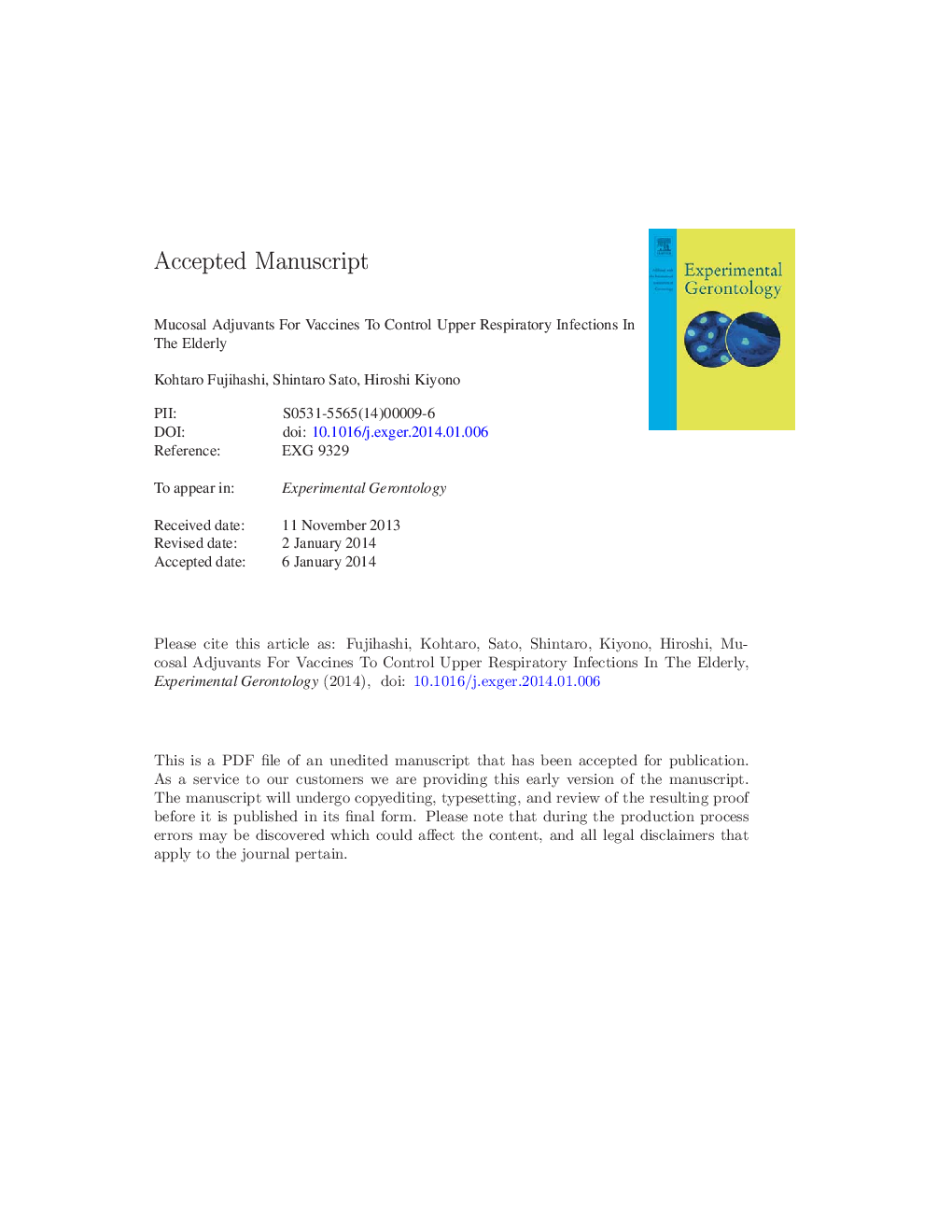| Article ID | Journal | Published Year | Pages | File Type |
|---|---|---|---|---|
| 8264414 | Experimental Gerontology | 2014 | 33 Pages |
Abstract
Influenza virus and Streptococcus pneumoniae are two major pathogens that lead to significant morbidity and mortality in the elderly. Since both pathogens enter the host via the mucosa, especially the upper respiratory tract (URT), it is essential to elicit pathogen-specific secretory IgA (SIgA) antibody (Ab) responses at mucosal surfaces for defense of the elderly. However, as aging occurs, alterations in the mucosal immune system of older individuals result in a failure to induce SIgA Abs for protection from these infections. To overcome mucosal immunosenescence, we have developed a mucosal dendritic cell targeting, novel double adjuvant system which we show to be an attractive and effective immunological modulator. This system induces a more balanced Th1- and Th2-type cytokine response which supports both mucosal SIgA and systemic IgG1 and IgG2a Ab responses. Thus, adaptation of this adjuvant system to nasal vaccines for influenza virus and S. pneumoniae could successfully provide protection by supporting pathogen-specific SIgA Ab responses in the URT in the mouse model of aging. In summary, a double adjuvant system is considered to be an attractive and potentially important strategy for the future development of mucosal vaccines for the elderly.
Related Topics
Life Sciences
Biochemistry, Genetics and Molecular Biology
Ageing
Authors
Kohtaro Fujihashi, Shintaro Sato, Hiroshi Kiyono,
